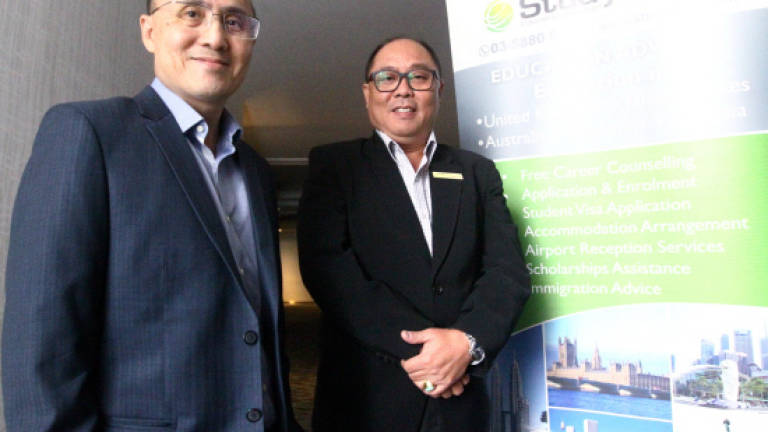Choosing the right pathway

MANY graduates find themselves in jobs they studied for, but have no passion in. They end up not excelling at their jobs and start wondering why they can’t do their jobs well or get passed over for promotions.
Many students do not take the path they want because of peer pressure, budget constraints or interests. Career planning should start once they leave Form Five and as early as Form Four, and not after they graduate.
Students should try to identify their interests, strengths and capabilities. They should try to know what their interests are and whether they have the strengths to study the programme and the capabilities to finish it.
This can be done through career profiling tests or speaking to professional counsellors. StudyExcel Sdn Bhd Director and Senior Counsellor, Tony Tan and General Manager, Jerry Tan share their thoughts on choosing the right pathway and the current education scene.
How should students decide on the study options available?
Jerry: Students should first identify what and where they would like to work after finishing their studies. From there, work backwards to the degree courses which leads them to job opportunities and the types of Pre-University, Diploma or Certificate courses which prepare them for their university studies.
Many do it the wrong way by just picking a Pre-University course which claims will get them into university later without knowing they may not need to do that course at all. For example, a student who wants to be a chef should be looking at culinary courses at Certificate and Diploma levels and not a Pre-University programme.
If students are undecided, then a traditional pathway would be best but they still need to know the combination of subjects and where they intend to continue their studies.
What is your personal advice?
Jerry: My advice to students would be to speak to qualified counsellors who can help them identify their strengths and interests, and then map out the courses which they may excel in once they graduate.
No one pathway is correct for everyone. It should be tailored to the students’ capabilities as well as their budget. Some may need to study a traditional Pre-University pathway while others are better off studying Certificate and Diploma or Vocational courses.
What is the difference studying overseas and locally?
Tony: In overseas schools, colleges and universities, the difference becomes more acute because students are able to choose their lecturers, their choice of study times and a wide variety of subjects.
Students in most universities are able to cross faculties to take up subjects outside their major. Students choose what they are interested in by studying outside of their core subjects. That allows them to gain the knowledge in other areas they may be looking at working in when they graduate.
Students also generally develop a more confident personality upon their return and are able to work independently. That is why overseas graduates have an added advantage from the local graduates, but we have to take into consideration of their individual personality and attitude as well.
The benefits outweigh the weaknesses in this choice. The only weakness would be the higher costs, but this can be mitigated by a carefully planned pathway.
What are the current education trends?
Tony: Students in Malaysia prefer to go for traditional courses like Medicine, Dentistry, Pharmacy, Actuarial Science, Biomedical Science and Engineering. But they are unaware there are alternative courses in their area of interests.
There are alternative careers for those interested in science like Chiropractic Science, Physiotherapy and Occupation Therapy which earn more or just as much as doctors and specialists over the same period of time and the tuition fees costs half of what a medical degree.
Instead of Engineering, why not go for Project or Logistic Management if a student is not inclined towards Science, but is better at management. Look at how many things are marketed online today and how graduates are needed to understand logistics, warehouse and shipping. Or even Marine Engineering where you design and build oil platforms as part of your studies.
Top 10 mistakes students make
1. Not knowing your strengths and capabilities and studying a course not of their interests or to their strengths.
2. Taking the wrong PreUniversity programmes.
3. Taking the wrong subjects in Pre-University.
4. Not checking the course structure and course requirements.
5. Not checking the institution’s strengths and facilities.
6. Being obsessed with university rankings rather than the faculty rankings.
7. Accepting scholarships without checking the details.
8. Not checking employment opportunities and requirements.
9. Blindly following friends.
10. Studying someone else’s dream.